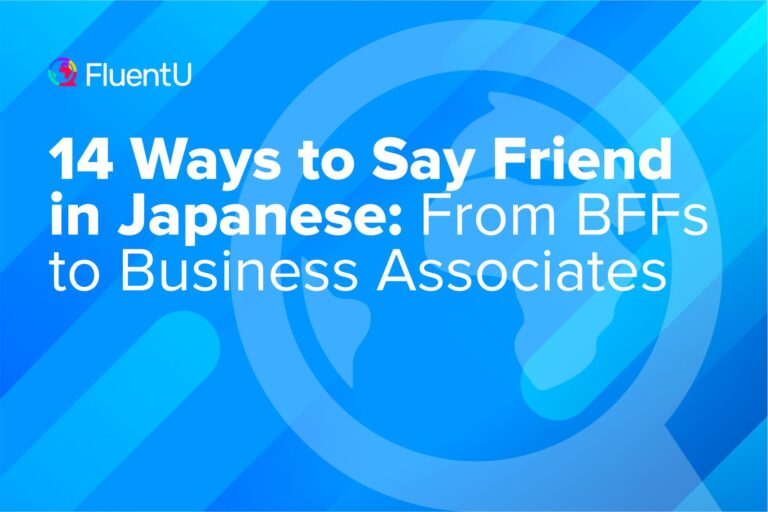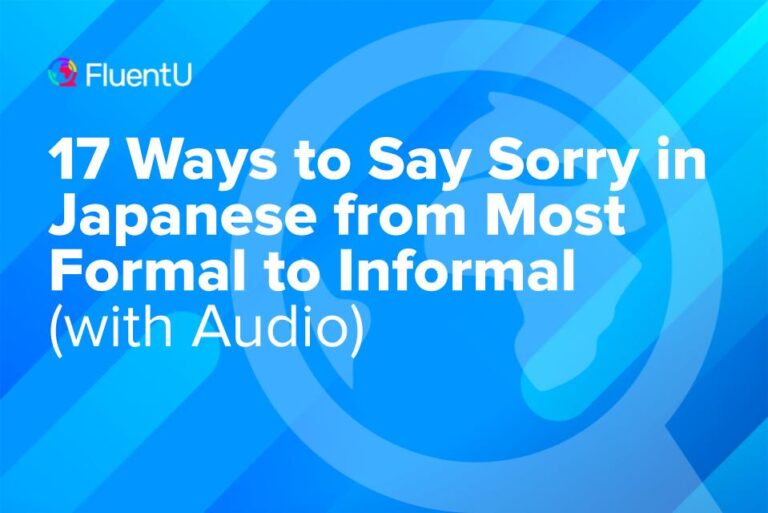Contents
- 1. “Unbeatable Banzuke” ( 筋肉番付 )
- 2. Downtown’s This Is No Task for Kids! ( ダウンタウンのガキの使いやあらへんで! )
- 3. “PokaPoka” ( ぽかぽか )
- 4. “AKBINGO!” (AKBINGO!)
- 5. “AmeTalk” ( アメトーーク )
- 6. “London Hearts” ( ロンドンハーツ )
- 7. “Wide na Show” ( ワイドナショー )
- 8. “Ariyoshi Assists” ( 有吉の壁 )
- 9. “Last One Standing” ( トークサバイバー!~トークが面白いと生き残れるドラマ~ )
- 10. “Karaoke Battle” ( カラオケ★バトル )
- 11. “Banana Man no Sekkaku Gurume!!” ( バナナマンのせっかくグルメ!! )
- 12. “Run for Money Tousouchuu” ( ランフォーマネー 答えを求めて走れ! )
- 13. “Sudden! Golden Legend” ( いきなり!黄金伝説 )
- 14. The Tetsuwan Dash ( 鉄腕DASH )
- 15. Sentôsha ( 戦闘車 )
- 16. Old Enough! ( はじめてのおつかい )
- 17. Why Did You Come to Japan? ( なぜ来日? )
- And One More Thing...
17 Japanese Variety Shows to Teach You the Language

Japanese variety shows are characterized by their fast-paced nature, high energy and often hilarious, laugh-out-loud content. Variety shows are very common in Japan and Korea, going toe-to-toe in popularity with television dramas.
And since there’s a variety of variety shows, each one appeals to different interests and tastes and will teach you different skills and aspects of the Japanese language. Find your new favorite among the list of 17 popular variety shows in Japanese.
Download: This blog post is available as a convenient and portable PDF that you can take anywhere. Click here to get a copy. (Download)
1. “Unbeatable Banzuke” ( 筋肉番付 )
You know those athletic competition TV shows like “Ninja Warrior” and “Wipeout”? This show is the father of them all!
Also known as “Sasuke” outside of Japan, this popular Japanese variety show gained widespread international recognition. The show revolves around a challenging obstacle course known as “Banzuke,” designed to test the physical strength, endurance and agility of the contestants. Each episode features a diverse range of competitors, including professional athletes, celebrities and everyday individuals, who attempt to conquer a series of progressively difficult stages.
With thrilling and often humorous commentary provided by the hosts, the show showcases the contestants’ determination, skill and sometimes spectacular failures. “Unbeatable Banzuke” became renowned for its intense competition, awe-inspiring athleticism and the sheer entertainment value it offered to its audience.
2. Downtown’s This Is No Task for Kids! ( ダウンタウンのガキの使いやあらへんで! )
Often referred to simply as “Gaki no Tsukai,” this long-running and immensely popular Japanese variety show is hosted by the comedy duo Downtown, consisting of Hitoshi Matsumoto and Masatoshi Hamada. The show follows a unique format that combines comedy skits, challenges and absurd games, all designed to entertain and test the endurance of the cast members.
One of the most well-known segments of the show is the “Batsu Game” (Punishment Game), where the cast members participate in outrageous and often painful punishments if they fail to complete a given task. These punishments are typically themed and can range from enduring physical discomfort, embarrassing situations or even eating bizarre or unappetizing foods. The cast’s reactions and comedic banter add to the hilarity of the show, making it a favorite among both Japanese and international audiences.
3. “PokaPoka” ( ぽかぽか )
Poka-poka is an onomatopoeic Japanese word that describes that warm, cozy feeling that you get when you walk into a well-heated room on a cold winter day. This 2023 series harnesses the fuzzy feels in a hybrid talk/variety show format. Presenters Haraichi and Aika Kanda interview a star-studded selection of guest stars, including comedians and actors.
Despite the extremely colorful set and absurd mascots, “PokaPoka” features less extreme antics than typical Japanese variety shows. They often delve in-depth into their guests’ lives and jobs, do silly activities and sometimes even go on field trips. It’s a warm and sweet show that lives up to its name!
You can watch official clips and segments on the PokaPoka YouTube channel, or stream shows as they air on Fuji TV, where new episodes are available for a week after they air.
4. “AKBINGO!” (AKBINGO!)
“AKBINGO!” is a popular Japanese variety show that features the members of the renowned idol group AKB48. The show was produced as a way to advertise the group and aired from 2008 to December 2019.
The format of “AKBINGO!” included various segments like game challenges, comedy skits and behind-the-scenes footage of AKB48’s activities. The show often showcased the members’ unique personalities and interactions, allowing fans to get to know their favorite idols better.
One of the most iconic segments of “AKBINGO!” was the “BINGO!” game, where members competed in teams to complete challenges and avoid getting “BINGO,” which meant they would face a punishment or embarrassing task. The show’s humor and lightheartedness, and the charm of the AKB48 members contributed to its popularity among fans and viewers.
5. “AmeTalk” ( アメトーーク )
AmeTalk started its life with a much longer title: 雨上がり決死隊のトーク番組 アメトーーク! (Ameagari Kesshitai no Tōku Bangumi Ametō̄ku). The show is hosted by a group of comedians and celebrity guests who gather around a table to engage in lively and humorous discussions. Each episode typically revolves around a specific theme or trending topic, like entertainment, fashion, technology or even everyday life matters. Sometimes, the theme of the episode is chosen from suggestions made by fans on the AmeTalk official website!
The format often involves comedic debates, personal anecdotes and candid opinions from the hosts and guests. The discussions are filled with witty banter, playful arguments, and spontaneous moments, making “AmeTalk” entertaining and engaging for its audience.
6. “London Hearts” ( ロンドンハーツ )
“London Hearts” is a dinosaur of a show: It first aired in 1999 and continues to entertain audiences today. What started as a hidden-camera prank show now focuses on seeing the human side of Japanese comedians, actors and TV personalities… for better or for worse. The show often ranks celebrities, puts them through ridiculously over-the-top hidden camera pranks and more.
The show prides itself on its edgy nature: So much so, that the Japanese PTA (parent-teacher association) voted it as the number one “TV program I don’t want to show to my children” for nine years in a row, starting in 2004. I don’t know about you but that makes me want to watch it even more!
7. “Wide na Show” ( ワイドナショー )
“Wide na Show” is known for its coverage of current events, entertainment news and trending topics in Japan and around the world. The show features a panel of hosts who engage in discussions and debates on various subjects like politics, social issues, celebrity gossip, entertainment industry updates and viral internet phenomena (to name just a few).
The program’s format includes witty banter, humorous insights and sometimes candid and heated debates among the hosts. It offers a mix of serious analysis and light-hearted entertainment, appealing to a wide range of viewers.
8. “Ariyoshi Assists” ( 有吉の壁 )
This ridiculous show is hosted by the comedian and TV personality, Ariyoshi Hiroiki. Except in this case, he’s not the main character—he’s just here to help. Or try to help, anyway. Each episode centers around a different group of celebrities, tasked with completing a specific goal. Ariyoshi is joined by a different guest MC for each episode, acting as an assistant to them.
Each episode has a different theme, ranging from the relatively innocuous cooking (while being psychologically and physically tortured) theme to the more extreme martial arts tournament (between untrained men dressed as perverts). And yes, every moment is as ridiculous as it sounds.
9. “Last One Standing” ( トークサバイバー!~トークが面白いと生き残れるドラマ~ )
The full title of this one is “Talk Survivor! Survive the Drama with Funny Stories,” but “Last One Standing” is just so much snappier. This variety show doesn’t follow the typical format, instead throwing comedians into an unscripted mystery show. Hosted by comedy duo Chidori (Daigo and Nobu), each episode tasks guests with solving a mystery, while being funny. If they fail to draw laughs, they might not last until the end of the episode!
If you liked “Murderville” on Netflix, this one might be for you.
10. “Karaoke Battle” ( カラオケ★バトル )
As the name suggests, “Karaoke Battle” revolves around amateur singers showcasing their vocal talents in a competitive karaoke setting. Contestants from diverse backgrounds and age groups participate, bringing their unique styles and personalities to the stage and giving up-and-coming artists a chance to gain exposure.
In each episode, participants take turns singing songs of their choice before a live studio audience and a panel of judges. The performances are critiqued based on vocal abilities, stage presence and audience engagement. Some contestants demonstrate impressive vocal prowess, while others captivate the audience with their charisma and entertainment value. The show’s format blends the excitement of a singing competition with heartwarming and emotional moments as contestants share their personal stories and dreams.
11. “Banana Man no Sekkaku Gurume!!” ( バナナマンのせっかくグルメ!! )
“Banana Man no Sekkaku Gurume!!” is a Japanese variety show where the comedy duo Banana Man explores diverse local cuisines across Japan. The show combines humor and gastronomy as they visit restaurants, sample dishes and interact with chefs and patrons. The show is known for its light-hearted and comedic approach to exploring the world of food. The hosts often inject humor into their interactions and provide entertaining commentary on the dishes they taste.
With its engaging hosts and focus on delicious food, “Banana Man no Sekkaku Gurume!!” has gained popularity among food enthusiasts and those seeking recommendations for dining experiences in Japan. The show’s blend of entertainment and gastronomy makes it an enjoyable and mouthwatering watch for viewers.
12. “Run for Money Tousouchuu” ( ランフォーマネー 答えを求めて走れ! )
“Run for Money Tousouchuu” is a Japanese variety show where contestants are dropped into urban landscapes tasked with navigating through various challenges and obstacles. The contestants are given clues and riddles that lead them to specific locations where they can find hidden money. However, they must complete the challenges and escape the pursuit of the Hunters within a limited time frame. The Hunters, played by a cast of professional athletes and celebrities, employ different tactics and strategies to capture the contestants.
Contestants navigate through city streets, using strategy and wit to outsmart their pursuers. The show’s fast-paced and intense nature, along with the suspense of being chased, creates a thrilling and entertaining experience for both the contestants and viewers.
13. “Sudden! Golden Legend” ( いきなり!黄金伝説 )
This Japanese variety show is known for its humorous and unexpected segments featuring ordinary people and celebrities. “Golden Legend” refers to the legendary status attained by participants who achieve impressive or unique feats during the show. Hosted by a comedic duo, the show surprises unsuspecting participants with offbeat and unexpected situations, capturing their candid reactions. This often includes pranks, hidden camera scenarios and humorous experiments.
The show became well-known for its creative and sometimes outrageous ideas, as well as its ability to capture funny and memorable moments. It featured a mix of comedic skits, game segments, and unique experiences that entertained viewers and showcased the comedic talents of the participants.
14. The Tetsuwan Dash ( 鉄腕DASH )
“Tetsuwan Dash,” also known as “Tetsuwan DASH” or “Tetsu-DASH,” is a popular Japanese variety show that follows a group of hosts as they embark on various challenges and adventures across different locations. The show is hosted by the comedy duo Tunnels, consisting of Masatoshi Hamada and Sanma Akashiya, and during its run from 1998 to 2020, it was known for its energetic and entertaining content.
The show’s concept centers around a group of hosts who travel to various locations within Japan, often in rural or less explored areas, to engage in unique challenges and adventures. The hosts, along with comedians and celebrities, interact with locals, immerse themselves in local cultures and tackle physical feats that often lead to comical and entertaining situations. Throughout its run, “The Tetsuwan Dash” emphasized community-building, teamwork and making a positive impact.
15. Sentôsha ( 戦闘車 )
“Sentôsha: Battle Wheels” aired from 2017 to 2018 and focused on a unique motorsport competition that featured modified cars known as “Sentôsha.” These cars were specially designed and built for intense battles and challenges on various terrains. In each episode, participants competed against each other using their customized Sentôsha vehicles. The challenges typically involved racing, obstacle courses and combat-like scenarios where the drivers would try to outmaneuver and disable their opponents’ vehicles.
“Sentôsha” provided an adrenaline-filled experience for both the participants and the viewers. The modifications made to the vehicles often included reinforced frames, enhanced engines and specialized weapons or tools for offensive and defensive maneuvers. The battles were action-packed, with the aim of either disabling opponents’ vehicles or crossing the finish line first.
16. Old Enough! ( はじめてのおつかい )
While this show is known as “Old Enough” in English, it’s known as “My First Errand” in Japanese. The Japanese title describes the idea behind the show: It follows preschool-aged kids as they embark on their first independent journeys. The show follows the kids as they go on errands, visit the market, speak with shopkeepers and other simple tasks. In a genre known for ridiculous and over-the-top scenarios and reactions, “Old Enough” provides a wholesome break.
The format of the show typically included a mix of live-action segments featuring the young children, along with animated segments that illustrated the scenarios and lessons being taught. The show’s gentle and educational approach made it a popular choice for parents and educators looking to introduce children to basic life skills in an engaging and relatable manner.
17. Why Did You Come to Japan? ( なぜ来日? )
This show’s concept involves spotting foreign tourists at Japanese tourist destinations, such as popular landmarks, train stations or shopping districts. The hosts approach these tourists and strike up conversations to find out their reasons for visiting Japan. The responses range from personal interests, pop culture fascination, culinary experiences and cultural exploration. Whatever the reason, they’re always entertaining!
“Why Did You Come to Japan?” offers a mix of entertainment, cultural exchange and informative content. It showcases the diversity of experiences and motivations that draw people from around the world to live in Japan. The show provides viewers with an opportunity to learn about different cultures, gain insights into the challenges and rewards of living in a foreign country and celebrate the international community in Japan.
And let’s face it: If you’re studying the Japanese language, you’re likely interested in the culture, as well. You’re in the right place for learning about both: All the variety shows above feature real Japanese language in use by native speakers.
For more authentic media, you can use the FluentU program.
FluentU takes authentic videos—like music videos, movie trailers, news and inspiring talks—and turns them into personalized language learning lessons.
You can try FluentU for free for 2 weeks. Check out the website or download the iOS app or Android app.
P.S. Click here to take advantage of our current sale! (Expires at the end of this month.)

Whether it’s comedy, competition or something entirely else, variety shows from Japan always do it in such a specific way that it’s hard for anyone to try to reproduce it.
The end result of these shows is always the same: Quality entertainment!
And One More Thing...
If you love learning Japanese with authentic materials, then I should also tell you more about FluentU.
FluentU naturally and gradually eases you into learning Japanese language and culture. You'll learn real Japanese as it's spoken in real life.
FluentU has a broad range of contemporary videos as you'll see below:

FluentU makes these native Japanese videos approachable through interactive transcripts. Tap on any word to look it up instantly.

All definitions have multiple examples, and they're written for Japanese learners like you. Tap to add words you'd like to review to a vocab list.

And FluentU has a learn mode which turns every video into a language learning lesson. You can always swipe left or right to see more examples.

The best part? FluentU keeps track of your vocabulary, and gives you extra practice with difficult words. It'll even remind you when it’s time to review what you’ve learned. You'll have a 100% personalized experience.
Start using the FluentU website on your computer or tablet or, better yet, download the FluentU app from the iTunes or Google Play store. Click here to take advantage of our current sale! (Expires at the end of this month.)







